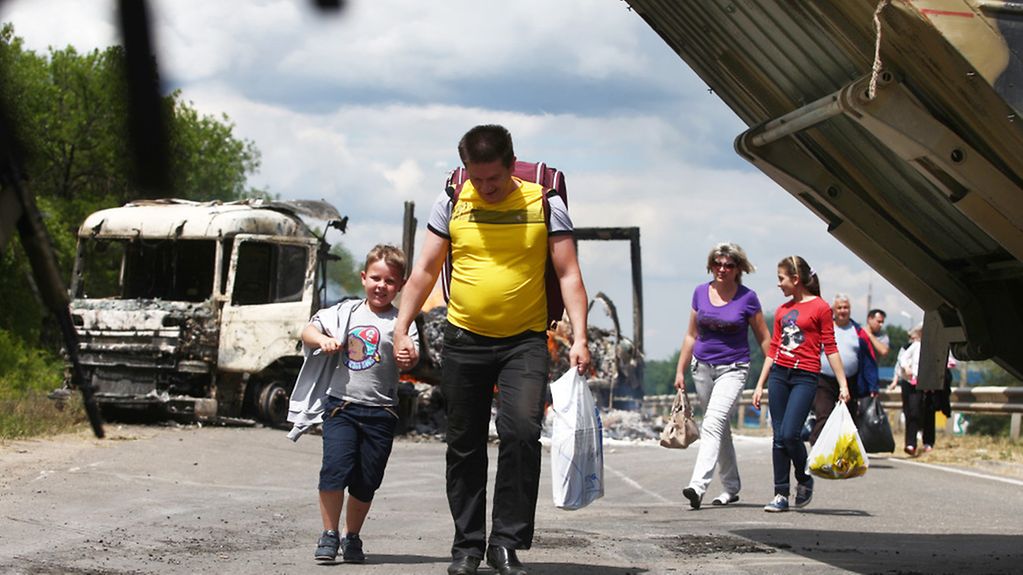Crisis in Ukraine
The humanitarian situation in Ukraine gives serious grounds for concern. The United Nations is already reporting around 60,000 internally displaced persons. In response, Germany has increased humanitarian aid. The Chancellor has also spoken by telephone with the Ukrainian and Russian Presidents.
1 min reading time

People flee violence in Ukraine
Photo: picture alliance / dpa
“People in eastern Ukraine now need clear signals that we are not oblivious to their fate,” stressed Federal Foreign Minister Frank-Walter Steinmeier. This is why Germany will increase humanitarian aid by 2.5 million euros to a total of 3.5 million euros. The aid is to benefit in particular the people in the worst hit areas of eastern Ukraine, including Sloviansk and Kramatorsk, as well as the internally displaced persons.
In Ukraine, the Federal Foreign Office is working with the German Red Cross and its partner organisation, the Ukrainian Red Cross, as well as the United Nations Refugee Agency (UNHCR) and the United Nations Office for the Coordination of Humanitarian Affairs (OCHA).
Chancellor speaks by phone with Vladimir Putin and Petro Poroshenko
Chancellor Angela Merkel and French President François Hollande spoke by telephone this morning with Russian President Vladimir Putin. They focussed once again on the situation in Ukraine and the ongoing efforts to bring about a ceasefire for both sides. Angela Merkel and François Hollande stressed the importance of a swift meeting of the Contact Group, consisting of representatives of Ukraine, Russia and the Organization for Security and Co-operation in Europe (OSCE) with representatives of the separatists. Russia must use all the options it has to influence the separatists to this end, she said.
Yesterday the Chancellor and the French President spoke together with the Ukrainian President Petro Poroshenko. Angela Merkel expressed her hope that talks between the Contact Group and separatist representatives can be resumed at last to discuss a ceasefire for both sides and the implementation of the peace plan.
The Contact Group consists of representatives of the Ukrainian government, the Russian government and the Organization for Security and Co-operation in Europe (OSCE)